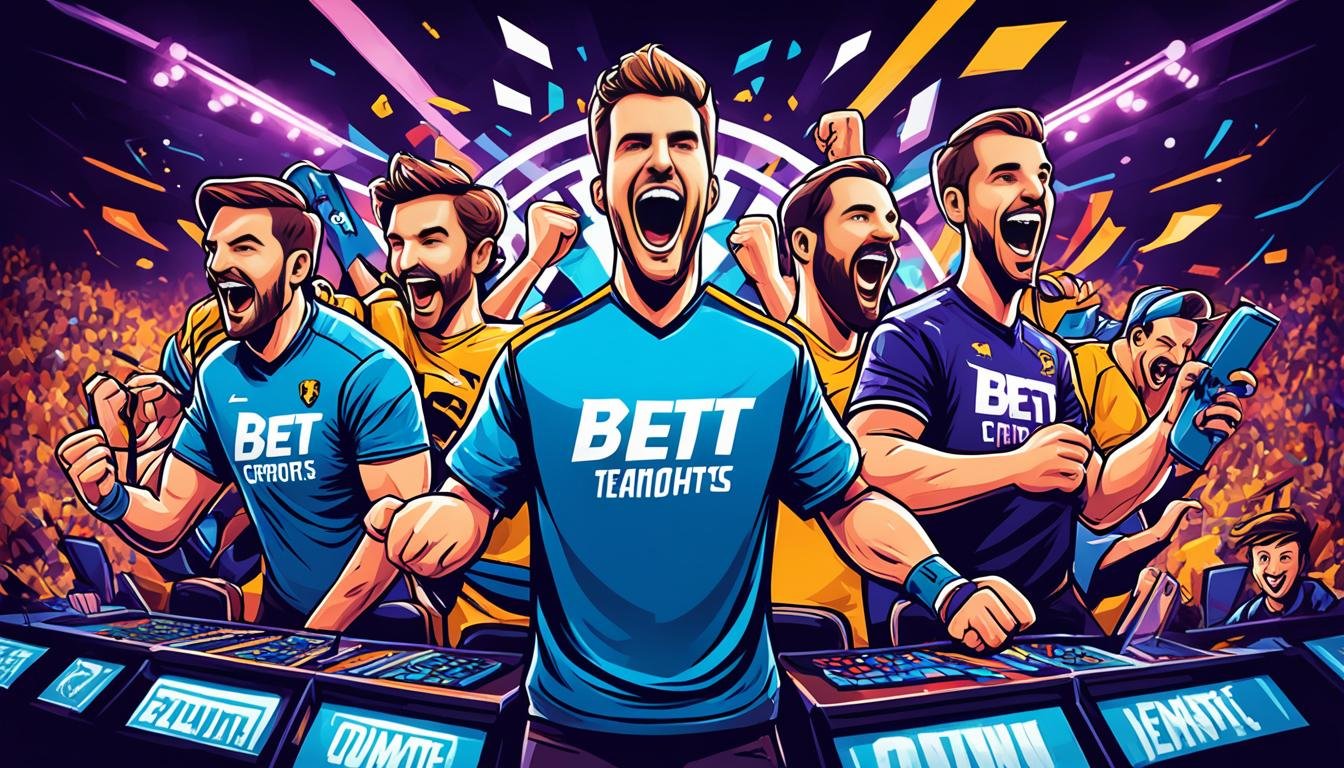When the bright lights flash and the slots reel, the underlying power of behavioral economics begins to affect every decision made on the casino floor. Casino psychology is a nuanced field that influences gaming behavior, compelling players to act and react in ways deeply rooted in emotional and psychological patterns. Acknowledging loss aversion, a pivotal concept within this domain, is essential to understanding the push and pull of gaming dynamics. Players’ inherent desire to avoid losses rather than pursue equivalent gains crafts a complex fabric of strategy and spontaneity in the dance of chance.
As we delve deeper into the psyche of a casino enthusiast, it becomes clear that the pull of loss aversion is a key player at the table. It intertwines with the allure of risk and vibrations of victory in a delicate balance, driving players’ experiences on platforms like PLAE8, an archetype of modern gaming excellence seeking to satiate psychological yearnings.
Key Takeaways
- Behavioral economics shapes decision-making in the casino environment.
- Understanding casino psychology is crucial for both players and casino operators.
- Loss aversion influences gaming behavior, often more powerfully than the appeal of winning.
- Platforms like PLAE8 are designed to engage players within the scope of cognitive patterns.
- Integrating knowledge of psychological principles can potentially aid in developing strategic betting approaches.
- Appreciating the drivers of loss aversion can lead to more informed and enjoyable gaming experiences.
Understanding Loss Aversion in Behavioral Economics
At the intersection of cognitive psychology and economic theory lies a compelling concept that shapes our decision-making processes: loss aversion. This behavioral economics principle suggests that people experience the sting of losses more deeply than the joy of gains. Below, we’ll dissect this psychological tendency and explore its broad implications beyond the casino floor.
Defining Loss Aversion in Simple Terms
Loss aversion can be simply defined as the preference to avoid losses rather than to achieve gains. In numerical terms, the sorrow from losing $50 often outweighs the happiness of finding $50. The theory plays a crucial role in cognitive psychology by highlighting that our emotions do not hold a linear relationship with our wins and losses; instead, losses can loom larger than wins, even when they are of the same magnitude.
Origins of Loss Aversion Theory
The deep dive into loss aversion began with the groundbreaking work of Daniel Kahneman and Amos Tversky. They introduced prospect theory to the world, suggesting that people value potential losses and gains differently. Their research showed that losses are twice as potent, psychologically, as gains, which revolutionized the understanding of decision-making processes within behavioral economics principles.
Examples of Loss Aversion Outside Casino Gaming
While it’s widely observed in the casino industry, loss aversion transcends gaming. It’s influential in financial investments, where the fear of monetary loss may deter an investor from taking calculated risks, even when potential rewards could be substantial. Consumer behavior also exhibits loss aversion, with customers often being more motivated by avoiding a penalty, like a late fee, than by getting a discount.
| Scenario | Loss Aversion Manifestation |
|---|---|
| Investments | Prefering a lower but guaranteed return over a risky investment with higher potential gains |
| Shopping | Buying items on sale not needed currently, to ‘avoid losing’ on future cost |
| Membership Renewals | Renewing memberships to avoid the feeling of ‘wasting’ the initial cost even when usage is low |
The Role of PLAE8 in Casino Decision Making
As the online gaming industry evolves, the impact of platforms like PLAE8 on casino gaming experiences cannot be overlooked. With an intuitive interface and a plethora of gaming options, PLAE8 has redefined the way players engage with online casinos. It is significant to explore how this platform shapes player behavior and facilitates strategic betting.
PLAE8 has been designed to provide a user-friendly environment that caters to both seasoned and novice gamblers, bolstering their confidence in placing bets. By analyzing player behavior trends, PLAE8 can offer personalized game suggestions that align with the userâs preferences and betting patterns, influencing their decision-making process.
The platform’s architecture is not simply about aesthetics; it serves to mitigate the psychological stress associated with potential losses. For instance, the ability to set betting limits and access detailed game statistics empowers players to make more informed betting choices. This level of control is a pivotal factor in combating loss aversion, as players feel more secure when they can manage potential risks strategically.
- Customizable betting limits to foster responsible gambling
- Real-time game analytics for refining betting strategies
- Tailored game recommendations to enhance engagement
Letâs delve into the specific features of PLAE8 that synergize with strategic betting approaches:
| Feature | Impact on Strategic Betting | Influence on Player Behavior |
|---|---|---|
| Betting Limits | Encourages setting boundaries to manage funds effectively | Increases sense of security and reduces risk of impulsive betting |
| Game Statistics | Provides insights to adjust strategies based on past game outcomes | Promotes analytical approach to betting decisions |
| Personalized Suggestions | Matches player preferences with suitable games | Improves overall satisfaction and retention rates |
Ultimately, the role of PLAE8 in enhancing casino gaming experiences is integral to modern gambling dynamics. It leverages technology to mold standard betting practices into more conscious and strategic activities, aligning with the individual’s desire to optimize their chances of success and minimize avoidable losses.
Loss Aversion vs. The Thrill of Winning
In the dynamic world of casino gaming, the interplay between risk-reward psychology and the inherent emotional responses in gaming creates a complex landscape of highs and lows for players. Understanding this delicate balance can unravel why a gambler’s heart races with each win or why a loss can weigh heavily on their mind.
Why Winning Feels Good But Losing Feels Worse
The rush associated with winning is a potent force, driven by the release of dopamine, a neurotransmitter linked to feelings of pleasure and reward. However, this euphoria is often fleeting due to hedonic adaptation, where the thrill dissipates as victories become familiar. On the flip side, the sting of losing lingers, a consequence of risk-reward psychology, where the fear of losing outstrips the joy of equivalent gains. This disparity in emotional responses in gaming can lead to cautious or sometimes erratic gambling behaviors, as the aversion to loss takes the driver’s seat in the decision-making process.

Comparing Gains and Losses in the Mind of a Gambler
When a gambler is faced with a decision, the comparative weight of potential gains and losses is heavily scrutinized. This cognitive process is influenced not only by the possible outcomes but also by the individual’s psychological makeup and their susceptibility to hedonic adaptation. Past experience and the anticipation of future regret play pivotal roles. While some may take a conservative stance, hoping to minimize losses (risk-averse behavior), others might chase the lure of recouping or winning big (risk-seeking behavior), often pushing boundaries of rational betting. Such behaviors reflect the deep-rooted influence of loss aversion and can shape the trajectory of a gamer’s experience.
Behavioral Patterns of Gamblers and Loss Aversion
As we delve into the intricate web of gambling psychology, two phenomena emerge as substantial influencers on a gambler’s behavior: the gambler’s fallacy and the sometimes contradictory risk-seeking behavior in the face of losses. Although these aren’t the only cognitive distortions in gambling, they provide a fascinating glimpse into the complexities of risk psychology.
The Gambler's Fallacy and Loss Aversion
The gambler’s fallacy is a fundamental misunderstanding of probability, where players mistakenly believe that past random events influence future ones. At the heart of this fallacy lies a struggle with loss aversion, where the avoidance of loss is often a stronger motivator than the acquisition of equivalent gains. This cognitive distortion can lead gamblers to make decisions that defy the odds in an effort to ‘balance out’ their luck.
The gambler’s fallacy often seduces players into believing that a streak of losses must be followed by a win, thereby tempting them into continuing to bet, despite a series of unfavorable outcomes.
Risk Seeking Behavior in the Face of Losses
Intriguingly, while loss aversion typically engenders cautious behavior, it can also produce the opposite effect: risk-seeking. After experiencing loss, some gamblers become inclined to make more daring bets in the hope of quickly recouping their bankroll. It’s a phenomenon in risk psychology that sees a player transition from cautious to cavalier as the pain of loss intensifies.
To bring these concepts to light, letâs consider the following table that illustrates how gamblers might respond to a series of game outcomes:
| Game Outcome | Typical Loss Aversion Response | Risk Seeking Tendency |
|---|---|---|
| Loss Streak | Folding to minimize further loss | Increase bets to ‘break’ the streak |
| Single Big Loss | Stop playing to assess strategy | Double down on next bet |
| Win After Losses | Cautiously continue playing | Perceives a ‘hot streak’ and increases bets |
Understanding these behaviors not only aids gamblers in recognizing their own tendencies but also equips casinos to create environments that address these psychological phenomena.
Cognitive Biases Impacting Gambling Decisions
It’s well-documented that cognitive biases in gambling can profoundly affect players’ decisions, often leading to irrational and financially detrimental behavior. One of the most pervasive of these biases is confirmation bias, which sees individuals searching for or interpreting information in a way that confirms preconceptions, conveniently by-passing evidence to the contrary. This tendency can cause gamblers to remain at the table, convinced their strategy must eventually pay off, even when losses stack up.
Another notable cognitive distortion is the anchoring bias. This occurs when an individual relies too heavily on an initial piece of informationâthe “anchor”âwhen making decisions. In the context of gambling, this might involve the amount of a potential win a player has in mind, skewing their perception of all subsequent bets. It’s essential to understand these biases, as they can silently govern our choices and keep us in potentially unfavorable situations.
In addition to these, there are several other cognitive biases that can influence gambling behaviors:
- Overconfidence bias â which leads to believing we have more control over the outcome of a bet than we actually do.
- Gambler’s fallacy â the mistaken notion that past events can influence the randomness of future outcomes.
- Optimism bias â which makes us believe that we’re less likely to suffer negative consequences than others.
Here’s a closer look at how these cognitive biases might manifest in a casino setting:
| Cognitive Bias | Example in Gambling | Potential Impact |
|---|---|---|
| Confirmation Bias | Focusing on small wins while ignoring losses | May encourage continued gambling despite overall losses |
| Anchoring Bias | Being influenced by the first jackpot number seen | Could cause unrealistic expectations and misinformed bets |
| Overconfidence Bias | Feeling certain of a win after a few successful rounds | Can lead to excessive betting and unexpected losses |
| Gambler’s Fallacy | Believing a slot machine is ‘due’ to pay out | Ignores probability and can prolong losing streaks |
| Optimism Bias | Thinking ‘it won’t happen to me’ regarding heavy losses | Underestimates risk and may cause ignoring of safe practices |
Understanding these cognitive biases in gambling is not simply academic; it’s a critical step towards more responsible gaming. Knowledge can arm players with the insights to recognize detrimental patterns and strategies, enhancing enjoyment and preventing negative gambling experiences.
Emotional Triggers and Casino Atmosphere Effects
The whirlwind of experiences inside a casino does more than entertain; it carefully crafts a psychological landscape. The strategic use of casino atmosphere and emotional triggers in gaming has been proven to affect risk perception and decision-making processes of players.
The Impact of Sensory Cues on Risk Perception
Casinos are masters at using sensory cues to manipulate player experiences. From the clinking sounds of slot machines to the strategic lighting that stimulates excitement, casinos create environments that significantly lower the perceived risk of gaming. Research has shown that these environments can make people more comfortable with taking greater risks at the tables.
Manipulating Moods to Influence Betting Choices
Through the employment of various psychological manipulations, casinos can alter the mood of players. This mood change can lead to increased risk-taking which may tip the scales away from rational decisions toward emotional reactions. The result is an experience that keeps gamblers engaged longer and more deeply invested in the game outcomes.
| Sensory Cue | Emotional Trigger | Risk Perception Influence |
|---|---|---|
| Lights | Excitement, Optimism | Reduced sense of risk |
| Sounds | Anticipation, Satisfaction | Encourages continued play |
| Scents | Comfort, Familiarity | Lower defenses, increased betting |
Marketing Strategies That Leverage Loss Aversion
Within the competitive realm of casino marketing, the exploitation of psychological principles is not only common but also necessary for success. Among the most potent of these principles is loss aversion, a concept deeply rooted in the behavioral patterns of gamblers. Understanding the sway of loss aversion strategies allows casinos to craft marketing campaigns that resonate with customers’ tendencies to prioritize the avoidance of losses over the pursuit of equivalent gains.
One of the primary approaches to leveraging loss aversion in casino marketing is through the offer of promotional incentives. By providing players with bonuses or rewards, casinos create a perceived safety net, softening the blow of potential losses and making the risk-taking venture of gambling more palatable. This strategy is not only evident in sign-up bonuses but is also visible in the widespread use of loyalty programs, where ongoing play is rewarded, in turn encouraging continuous engagement with the platform or casino.
Stimulating the player’s engagement through tailored rewards not only mitigates the psychological impact of losses but also cultivates a sense of value and belonging among casino patrons.
It is a well-substantiated fact that when customers feel they’re receiving something extra, their aversion to potential losses diminishes. Hence, casino marketing professionals devise a variety of promotions to appeal to this sentiment. Below is an outline of promotional incentives that hold sway over players:
- Free play credits for new or consistent players
- Cashback offers on losses within a certain period
- Loyalty points redeemable for games, goods, or services
- Entry into tournaments with large prizes
- Special occasion and holiday promotions
Marketing strategies that directly address the players’ pain points, evident through loss aversion, tap into the emotional core of gambling psychology. By implementing such tactics, casinos ensure that even the most loss-averse individuals find the offer too enticing to overlook. This delicate balance between risk and reward, crafted through promotional incentives and loss aversion strategies, highlights the sophistication and depth of contemporary casino marketing.
How Casinos Capitalize on Players' Aversion to Loss
The intricate web of game design psychology and the allure of casino bonuses represent pivotal player retention strategies in modern casinos. These establishments cleverly employ tactics to harness a gambler’s inherent desire to minimize losses, fostering an engaging and seemingly rewarding environment.
Designing Games to Encourage Continued Play
Casinos and online platforms like PLAE8 invest heavily in game design psychology to create an environment where players feel in control and less at risk. The integration of features that promote frequent small wins or the illusion of near misses plays into the psychological need to continue playing in hope of recovering any losses.
To illustrate this, let’s examine the layout of a typical slot game, which often includes free spins, bonuses, and choice-based elements. With these features, players tend to feel their actions can influence outcomes, thereby reducing the perceived risk of loss and encouraging longer play sessions.
Offering Bonuses and Rewards to Offset Losses
Casino bonuses have become a cornerstone in counteracting player losses. By offering sign-up incentives, loyalty rewards, or periodic bonuses, casinos create a safety net that cushions the blow of losses. This strategy not only improves the player’s experience but also incentivizes them to continue playing.
| Bonus Type | Description | Player Benefit |
|---|---|---|
| Sign-up Bonus | Free credits or spins granted upon joining the casino. | Reduces the initial risk of playing and allows for a free trial of games. |
| Loyalty Rewards | Points or credits accumulated through regular play, redeemable for prizes or more play credits. | Encourages continued play and rewards consistent patronage. |
| Periodic Bonuses | Time-sensitive offers like reload bonuses, free spins on new games, or holiday specials. | Keeps the gaming experience fresh and exciting with new opportunities to win. |
Furthermore, these strategically deployed bonuses effectively promote a more appealing gaming experience despite the inherent risks involved, successfully retaining players and cultivating long-term engagement.
Strategies to Overcome Loss Aversion in Gaming
Adopting healthy gambling habits is essential for players looking to enjoy gaming without falling into the trap of loss aversion. Recognizing the patterns of aversion can empower gamblers to issue a challenging yet rewarding reframe of their gaming experiences. Below are actionable decision-making strategies aimed at overcoming loss aversion, promoting a more balanced and rational approach to gambling.
- Set Clear Gambling Limits: Before playing, it’s crucial to have a predetermined spending limit to ensure you don’t gamble more than you can afford to lose.
- Maintain Awareness of the Odds: Understanding the odds of the games you play helps in making informed decisions and recognizing the realities of potential gains and losses.
- Emotional Resilience: Build your capacity to cope with the emotional impact of losing, remembering that it is a natural part of gambling.
- Regular Breaks: Taking breaks can help clear your mind and prevent impulsive decisions driven by the heat of the moment.
Mastering these strategies not only aids in combating loss aversion but also enhances overall gaming pleasure. Let’s delve deeper into how these habits can be incorporated into regular play.

| Strategy | Description | Benefit |
|---|---|---|
| Record Keeping | Maintain a journal to record wins and losses, fostering accountability. | Provides a clear view of gambling habits, aiding in responsible gaming. |
| Game Selection | Choose games with better odds and familiarize yourself with the rules. | Improves the likelihood of making informed bets, reducing senseless risks. |
| Knowledge Expansion | Participate in forums and read literature on gambling strategies. | Enhances decision-making skills and confidence in gambling situations. |
| Loss Acceptance | Understand that losses are part of the experience and learning to let them go. | Helps in preventing the chase for losses and ensures healthier gameplay. |
Employing these strategies facilitates the acquisition of healthy gambling habits and the gradual process of overcoming loss aversion. By focusing on logical and informed decision-making strategies, gamblers can transform their gaming sessions into enjoyable activities balanced with the wisdom of restraint and responsibility.
Conclusion
As we have journeyed through the intricate psychological landscape of casino gaming, one concept stood out prominently: loss aversion. The grip this phenomenon holds on playersâ decision-making processes is undeniable, underscoring the delicate balancing act that is informed gambling. Casino gaming analysis has shed ample light on the undulating contours of human psychology, revealing that the aversion to loss can significantly shape the gaming experience. Recognizing this, both players and casino operators can move towards fostering a gaming environment hinged on awareness and strategic thinking.
For players, this recognition translates into practicing informed gambling. By acknowledging the innate biases and emotional triggers discussed throughout our article, gamblers can develop healthier habits and adopt a more rational approach to their favorite pastime. Meanwhile, for casino operators, understanding these psychological insights is indispensable. It enables the crafting of gaming experiences that are both engaging and respectful of players’ psychological tendencies, harmonizing entertainment with responsible gaming practices.
In conclusion, as we navigate the enthralling world of casino gaming, it is the marriage of psychological insights with player empowerment that will signal progress in the industry. By embracing these principles, the future of gambling can be tuned to a key of informed discretion, a concord where the thrills of gaming and the wisdom of restraint dance in tandem. This is the essence of informed gambling and the hallmark of an enlightened approach to casino gaming, imperative for a sustainable and enjoyable gaming culture.
FAQ
What is loss aversion in the context of casino gaming?
Loss aversion in casino gaming refers to the psychological tendency of players to go to greater lengths to avoid losses than to achieve gains of the same value. It’s a concept from behavioral economics that significantly impacts gaming behavior and decision-making in casinos.
Can you define loss aversion in simple terms?
Certainly! Loss aversion is the notion that for most people, the pain of losing money feels much more intense than the joy of winning an equivalent amount. It’s a principle stemming from cognitive psychology that influences many of our decisions, not just in gambling but in daily life as well.
Who developed the theory of loss aversion?
The theory of loss aversion was developed by psychologists Daniel Kahneman and Amos Tversky. It is a key component of their broader prospect theory, which examines how people make decisions when faced with risk and uncertainty.
How does PLAE8 relate to loss aversion and casino decision-making?
PLAE8 is a gaming platform that understands the behavioral patterns of its users, including their aversion to loss. The design of the platform and its games might be structured to engage players by mitigating the fear of losses and emphasizing entertaining and strategic betting options.
Why does losing money in gambling often feel worse than winning feels good?
This is because of whatâs known as hedonic adaptation â our emotional responses to positive or negative events tend to return to a baseline level of happiness over time. However, the sting of a loss typically lingers because we’re psychologically more affected by negative events. This asymmetry between the emotional impacts of losses and wins is at the heart of loss aversion.
What is the gambler’s fallacy and how is it related to loss aversion?
The gambler’s fallacy is the mistaken belief that if something happens more frequently than normal in a period, it will happen less frequently in the future, or vice versa. This belief is related to loss aversion as players might chase losses expecting a ‘due’ win, thinking past losses influence future odds.
Can gamblers become risk-seeking after losses, and why?
Yes, some gamblers might engage in risk-seeking behavior after experiencing losses in an attempt to recoup their funds quickly. This behavior is a reaction to the emotional distress caused by loss aversion and can often lead to even greater losses.
How do cognitive biases affect gambling decisions?
Cognitive biases like confirmation bias and anchoring can greatly influence gambling decisions. Players may selectively focus on information that confirms their wishes or rely too heavily on initial information (anchor) when making decisions, skewing rational judgment and potentially leading to suboptimal betting.
What role do sensory cues in a casino play in gambling behavior?
Sensory cues like bright lights, stimulating sounds, and even certain scents are used strategically by casinos to create a captivating atmosphere. These cues can alter risk perception, boost players’ moods, and encourage risk-taking behaviors, often preying on the playerâs loss aversion.
Do casinos use marketing strategies that leverage loss aversion?
Yes, casinos often employ marketing strategies that play on loss aversion, offering loyalty programs, promotional incentives, and other rewards that are designed to make players feel they are mitigating losses or getting a better deal, thus encouraging continued play.
How are casino games designed to encourage continued play regardless of losses?
Casinos and gaming platforms like PLAE8 design games with features that appeal to playersâ sense of control and desire for engagementâfactors that can reduce the perceived risk of loss and thus make playing more appealing, even when losses occur. This can include bonuses, rewards, and game dynamics that emphasize small victories.
What are some strategies to overcome loss aversion in casino gaming?
To overcome loss aversion in casino gaming, players can adopt strategies such as setting clear financial and time limits, fully understanding the games they choose to play, practicing healthy gambling habits, and maintaining a rational, informed approach to decision-making to minimize emotional influence on their bets.




